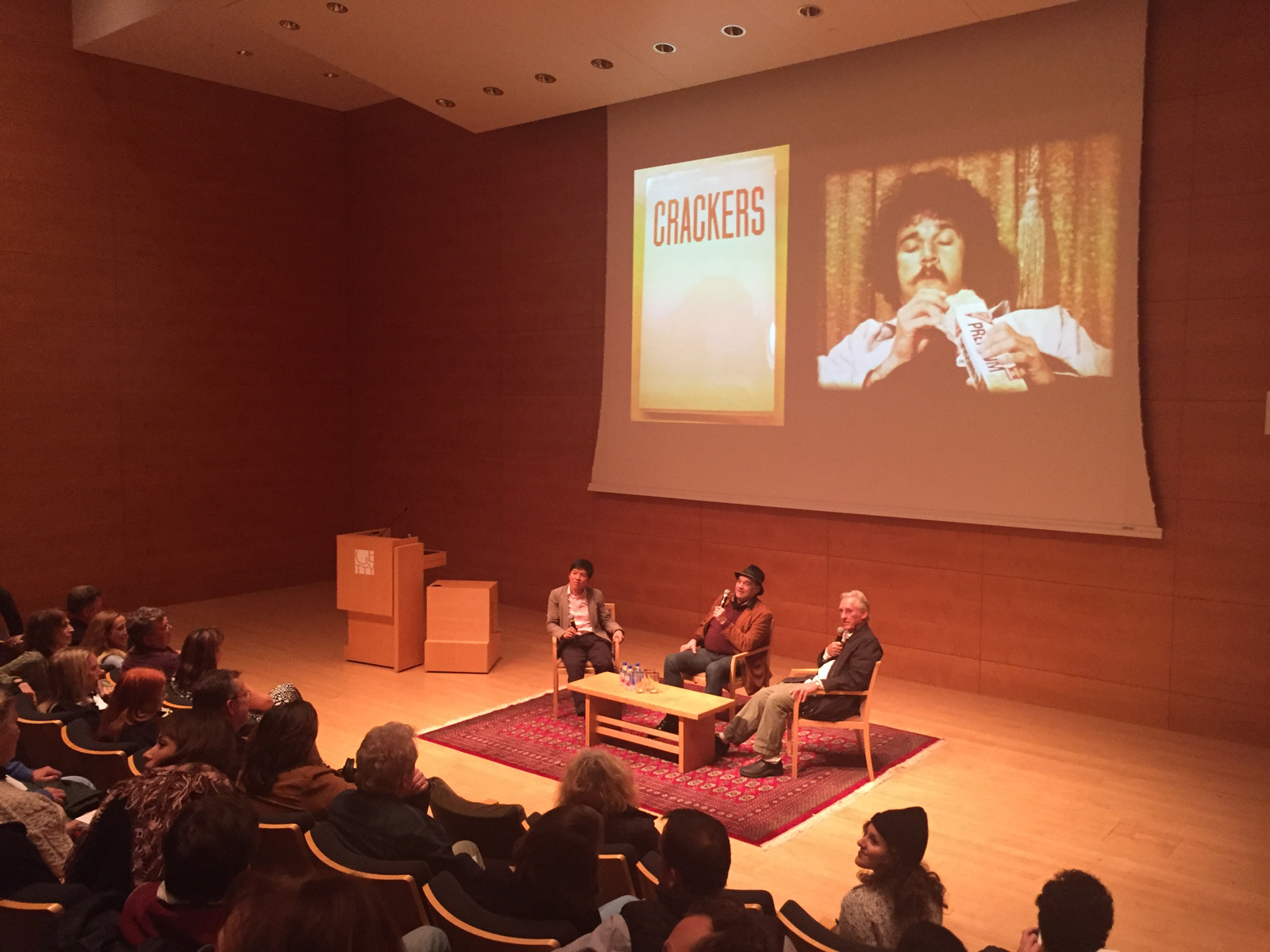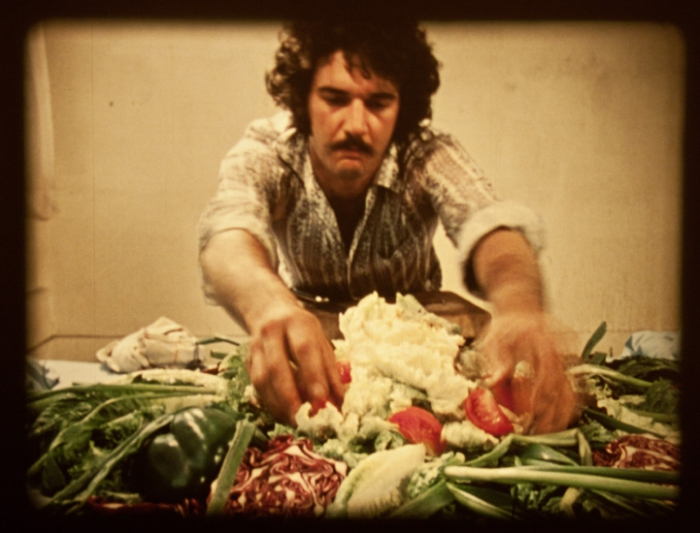with Ed Ruscha and Larry Bell
Introduced by John Tain
Getty Salad Garden
January 9, 2016
Getty Museum, Los Angeles

One of only two films made by Ed Ruscha over his dynamic artistic career, Premium is a filmic translation of 1969’s Crackers, one in an influential series of conceptual photography books created by Ruscha in the 1960s and 70s. Both the book and the film are based on the short story “How to Derive the Maximum Enjoyment from Crackers” written by Mason Williams, a musician and comedic writer for the Smothers Brothers, and a childhood friend of Ruscha’s.
Featuring perhaps one of the greatest appearances by salad in art history, Premium stars fellow L.A. art icon, sculptor Larry Bell, in a hilarious and absurd late-night adventure. Ruscha’s film is an exploration of storytelling and the conventional narrative codes of Hollywood, featuring his signature deadpan humor and keen translation of the contemporary American condition.
Crackers and Premium featured both professional actors, such as Léon Bing, a model and actress made famous by wearing the topless bathing suit designed by Rudi Gernreich (who himself has a cameo in the film as the hotel concierge), as well as figures from the art world, like Bell Set against the fabled Los Angeles backdrop, the film plays with the city’s extremes, as Bell’s tuxedo-clad character circulates between supermarkets, seedy hotel rooms, and gas stations in a chauffeur-driven car. The charade is matched with a Mariachi soundtrack, accentuating the absurdity of both the city and the story.
Hovering somewhere between the experimental “art films” of the era and a Hollywood movie, Ruscha has remarked that Premium never fit nicely into any categories. In a 1973 interview he said:
“If it was a movie of me standing against the wall or doing push-ups or doing concept art things, it would be one thing. But it doesn’t fit the artist-statement category... They’re statements. Mine’s not like that. I don’t want people to look at the film like it’s a deep statement on my part. It’s just an excuse, the story, to make a movie... I don’t know where the movie fits in anywhere, and I can’t place it in my art at all.”
Beyond involving a gigantic salad, Ruscha’s film shares a deeper affinity with the Getty Salad Garden, a program that hovers somewhere between typical categories at a museum — not quite an exhibition, or a public lecture series, or a workshop. It too is just an excuse to tell stories, to connect with a variety of fascinating people in Los Angeles, and to serve as a platform for the playful exploration of wherever an idea may lead.

